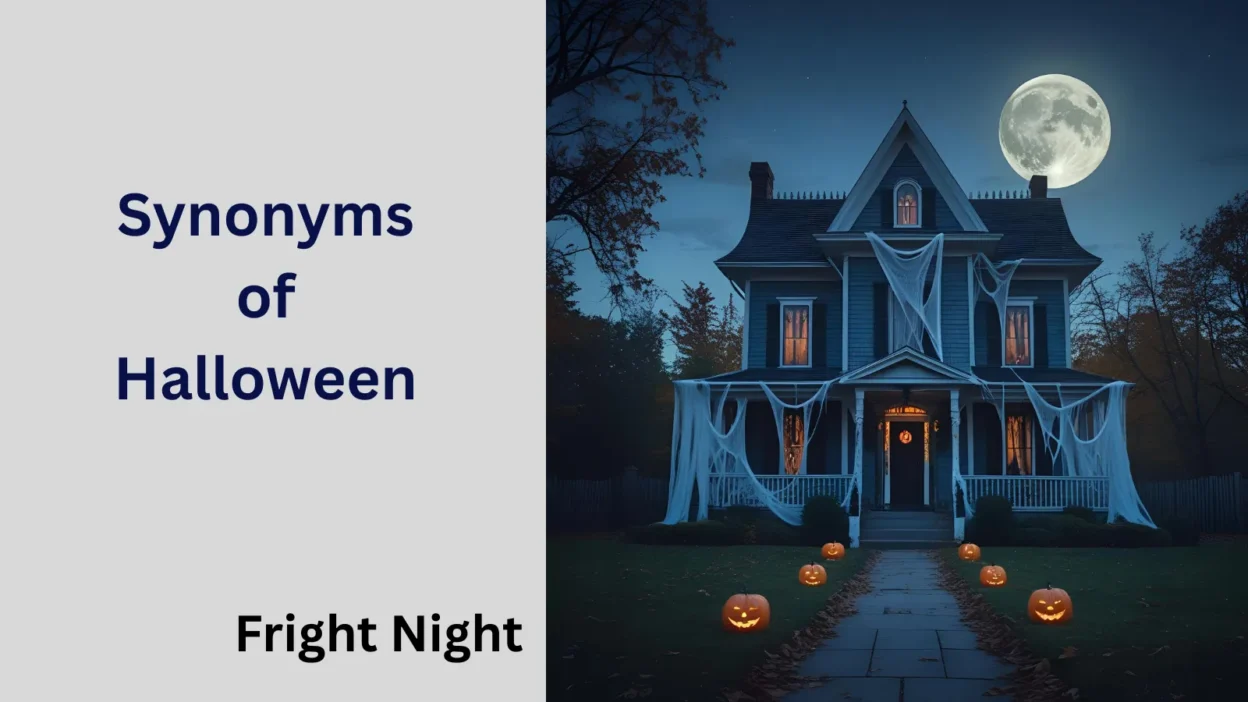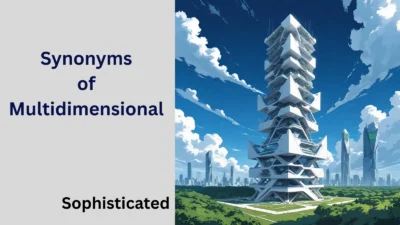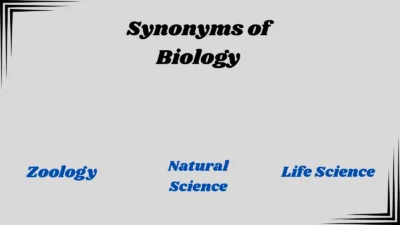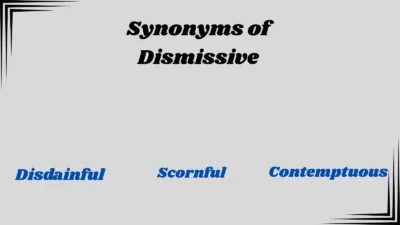Synonyms of Halloween, such as All Hallows’ Eve, Samhain, and Spooky Night, reflect the cultural, historical, and festive sides of this unique celebration.
For example, “All Hallows’ Eve” connects to its religious origins, while “Spooky Night” emphasizes the playful and eerie modern traditions.
These terms capture different aspects of Halloween, from ancient rituals to costume parties and trick-or-treating.
These synonyms of Halloween not only enhance your writing but also deepen your understanding of the holiday’s rich background.
From spooky nights and ancient Samhain traditions to undead legends and glowing pumpkins, these words capture the entire spirit of Halloween.
If you’re writing about the holiday’s past or its modern-day fun, using the right synonym helps set the perfect tone.
In this guide, we’ll explore a variety of ways to refer to Halloween and when each is most appropriate.
What Does Halloween Mean?
Halloween, short for All Hallows’ Eve, is observed on October 31st and has roots in ancient Celtic festivals, especially Samhain, where people believed the barrier between the living and the dead was thinnest.
Over time, it became a mix of pagan traditions, Christian observances, and modern-day fun.
Depending on how you use the word, Halloween can evoke:
- Spookiness
- Childlike excitement
- Autumn vibes
- Folklore and the supernatural
30 Synonyms & Related Words for Halloween (And When to Use Them)
All Hallows’ Eve
Meaning: The original, religious name for Halloween.
Use it when: You want a historical or formal tone.
- “They held a candlelit vigil on All Hallows’ Eve.”
- “All Hallows’ Eve marks the night before All Saints’ Day.”
Samhain
Meaning: An ancient Celtic festival marking the end of the harvest season.
Use it when: You’re referencing folklore, paganism, or historical origins.
- “The story is set during Samhain, when the undead roam freely.”
- “Samhain rituals inspired many modern Halloween traditions.”
Spooky Season
Meaning: A playful term for the Halloween period.
Use it when: You want something fun, modern, or social-media friendly.
- “It’s officially spooky season, bring on the horror movies!”
- “Pumpkin spice and spooky season vibes everywhere.”
Fright Night
Meaning: A night of scares and horror, often Halloween night.
Use it when: Emphasizing thrill, fear, or entertainment.
- “Join us for Fright Night—costumes required!”
- “Fright Night is our favorite Halloween tradition.”
Witching Hour
Meaning: The time when supernatural beings or undead are most active (usually midnight).
Use it when: Adding a mystical or eerie tone.
- “At the witching hour, the shadows come alive.”
- “She vanished right at the witching hour.”
Day of the Dead
Meaning: A Latin American holiday honoring deceased loved ones, often overlapping with Halloween.
Use it when: Highlighting cultural or spiritual celebrations.
- “Day of the Dead altars are beautiful tributes.”
- “Unlike Halloween, Day of the Dead is more about remembrance than fright.”
Ghost Night
Meaning: A night associated with spirits and hauntings.
Use it when: Writing spooky stories or poems.
- “It was ghost night, and silence ruled the woods.”
- “They say on ghost night, the past returns.”
Trick-or-Treat Night
Meaning: The evening when children go door-to-door for candy.
Use it when: Focusing on the kid-friendly, modern tradition.
- “Don’t forget to buy candy for trick-or-treat night.”
- “Our neighborhood loves trick-or-treat night.”
All Saints’ Eve
Meaning: The Christian observance that inspired Halloween.
Use it when: You want a liturgical or religious tone.
- “All Saints’ Eve is a time of reflection and prayer.”
- “The church service on All Saints’ Eve was moving.”
Festival of the Dead
Meaning: A broad term for holidays honoring the deceased.
Use it when: Speaking about multiple cultures or spiritual traditions.
- “From Samhain to Obon, every culture has a Festival of the Dead.”
- “Halloween evolved from a Festival of the Dead.”
Hallowe’en
Meaning: The traditional spelling of Halloween.
Use it when: Creating a vintage or old-world feel.
- “They held a proper Hallowe’en ball in the manor.”
- “This Hallowe’en, let’s go old-school.”
Monster Night
Meaning: A fun, kid-friendly way to refer to Halloween.
Use it when: Emphasizing costumes, play, or fantasy.
- “Get ready for Monster Night at the library!”
- “Monster Night is all about silly fun.”
Haunted Night
Meaning: A night associated with ghosts and fear.
Use it when: Writing fiction or horror content.
- “On this Haunted Night, beware the whispering trees.”
- “The house came alive on Haunted Night.”
Macabre Eve
Meaning: A creative, gothic way to reference Halloween.
Use it when: Writing poems or horror fiction.
- “Macabre Eve cast shadows through the town.”
- “A tale best told on Macabre Eve.”
Autumn Festival
Meaning: A broad term for seasonal celebrations.
Use it when: Talking about community events or non-scary traditions.
- “Our town hosts an Autumn Festival instead of Halloween.”
- “Kids enjoy games and crafts at the Autumn Festival.”
Night of Mischief
Meaning: A playful, slightly spooky alternative.
Use it when: Referring to pranks or folklore.
- “Welcome to the Night of Mischief!”
- “They call it the Night of Mischief for a reason.”
Pumpkin Day
Meaning: A fun, light-hearted way to refer to Halloween, especially for kids.
Use it when: Writing for families, classrooms, or children.
- “Let’s dress up for Pumpkin Day at school!”
- “Happy Pumpkin Day—time for pumpkin carving!”
Shadow Night
Meaning: A poetic term for Halloween night.
Use it when: You want something mysterious and lyrical.
- “The forest fell silent on Shadow Night.”
- “Only the bold walk out on Shadow Night.”
Costume Night
Meaning: A casual term emphasizing dress-up.
Use it when: Talking about parties or school events.
- “We’re hosting a Costume Night for teens.”
- “Friday is Costume Night at the rec center.”
Horror Night
Meaning: A scary event or horror-themed gathering.
Use it when: Referring to movies, haunted houses, or parties.
- “Get ready for Horror Night at the drive-in!”
- “The Horror Night maze is terrifying!”
Spirit Night
Meaning: A night for honoring or invoking spirits.
Use it when: Talking about rituals or metaphysical themes.
- “The coven gathered for Spirit Night.”
- “Spirit Night rituals date back centuries.”
Lantern Night
Meaning: A peaceful, glowing alternative with autumn vibes.
Use it when Discussing folklore or light-based traditions.
- “Children walked in a line on Lantern Night.”
- “Lantern Night is magical and calm.”
Night of Masks
Meaning: A symbolic or theatrical way to describe Halloween.
Use it when: Emphasizing disguise or transformation.
- “On the Night of Masks, identities shift.”
- “They wore elegant disguises on the Night of Masks.”
Cauldron Night
Meaning: A witchy, magical take on Halloween.
Use it when: Writing fantasy or children’s stories.
- “Cauldron Night brews are bubbling!”
- “Witches dance on Cauldron Night.”
Wraith Night
Meaning: A ghost-themed alternative with a dark twist.
Use it when: Writing horror or supernatural fiction.
- “Winds howled louder on Wraith Night.”
- “Legends warn of Wraith Night wanderers.”
Broomstick Night
Meaning: A whimsical or witchy name for Halloween.
Use it when: Aimed at kids or fun events.
- “Get your brooms ready—it’s Broomstick Night!”
- “Which hats and giggles filled Broomstick Night?”
Candlemas of Shadows
Meaning: A fictional, gothic term inspired by old traditions.
Use it when: Writing dark fantasy or world-building.
- “In their land, Candlemas of Shadows replaced Halloween.”
- “It is said that on Candlemas of Shadows, spirits feast.”
Scare Night
Meaning: A simple, fun way to describe Halloween events.
Use it when: Promoting spooky houses or spooky gatherings.
- “Get your heart racing at Scare Night!”
- “The kids loved Scare Night at the park.”
Night of the Living
Meaning: A twist on horror tropes, like “Night of the Living Dead.”
Use it when: Writing zombie-themed or pop culture stories.
- “They host a Night of the Living Dead marathon every Halloween.”
- “Night of the Living is perfect for horror fans.”
How to Pick the Right Halloween Synonym
Use fun, modern terms like Spooky Season or Trick-or-Treat Night in social media, kid-friendly content, or casual invites.
For traditional or spiritual terms like All Hallows’ Eve, Samhain, or Day of the Dead, for cultural, historical, or respectful contexts.
Use scary or dramatic alternatives like Fright Night, Wraith Night, or Macabre Eve for horror fiction or thrill-seeking audiences.
Final Thoughts:
In conclusion, the different synonyms for Halloween offer more than just alternate names—they reflect the evolution of the holiday across time and cultures.
From ancient festivals like Samhain to modern terms like Spooky Night, each expression captures a unique aspect of the celebration.
These Synonyms of Halloween enrich how we talk about Halloween, whether we’re referencing its historical roots or its playful, present-day traditions.
As you explore or describe this holiday, choosing the right synonym can set the perfect tone—be it eerie, festive, or nostalgic.
Let your word choice match the mood you wish to create, from haunting mystery to cheerful fun.





